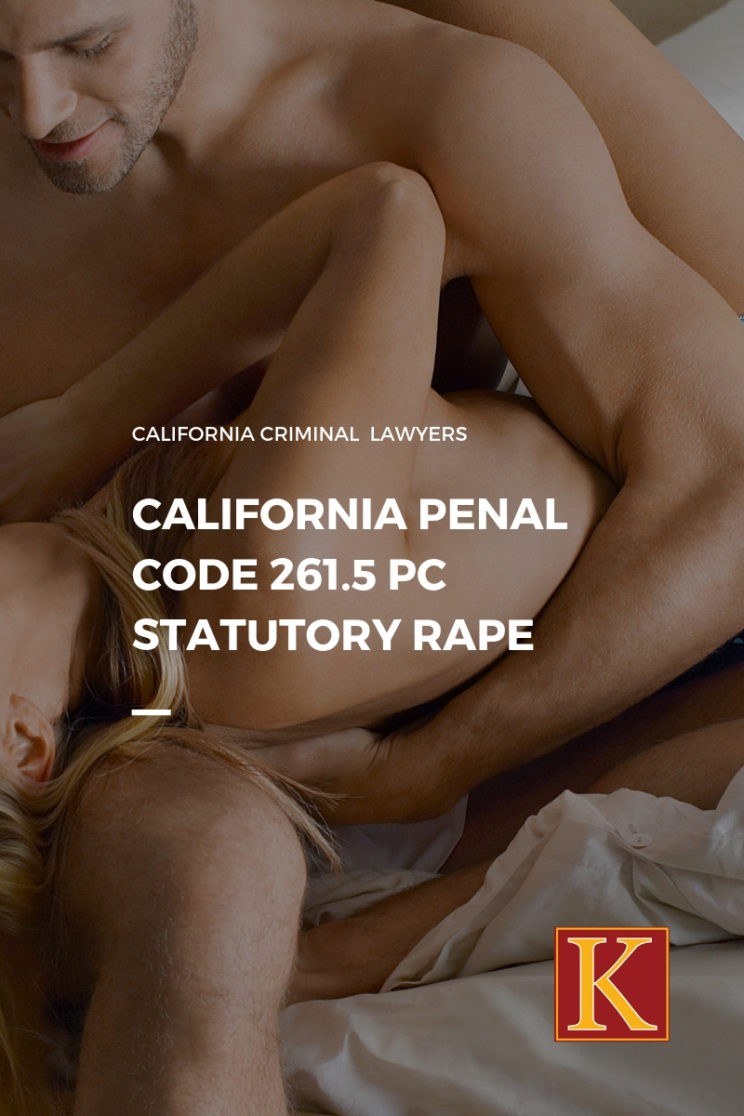California Penal Code Section 261 defines the crime of “rape” as sexual intercourse that is nonconsensual, because it’s achieved by means of threat, force or fraud threats. The following facts must be established in order to prove that the defendant is guilty of rape:
- There existed sexual intercourse between the supposed defendant and the victim. Sexual intercourse occurs immediately when the penis penetrates the vagina, regardless of how slight the penetration is or whether no ejaculation occurred;
- That the victim was not a spouse to the defendant at the time of intercourse. Evidence that the victim is currently married or is a former spouse to someone else does not add to the prosecutor’s proof;
- The supposed victim was underage during the intercourse.
There was Sexual Intercourse Between the Defendant and the Victim
Sexual intercourse for rape purposes is any penetration regardless of how slight it’s. The sexual intercourse can be either against the person’s will, or without that person’s consent. In the case of rape intercourse is defined very broadly. Even if the defendant initiated sexual act with someone against their will and after that regretted and terminated the act that still considers as rape.
The Victim Didn’t Give Consent to The Sexual Intercourse
Consent is a positive cooperation in an act meaning that one acts freely and voluntarily. Consenting to sexual act means doing so willingly with realizing the nature of the sexual act. The prosecutor must prove beyond a reasonable doubt that the victim did not give the consent to the sexual intercourse
- The intercourse must be accomplished through one of the following: physical force; duress, menace; fear of bodily harm to the victim or someone else; fraud threat of future retaliation
- The defendant and the victim weren’t married to each other at the time of rape;
Legal Defenses for Penal Code 261.5 PC Statutory Rape
A few legal defenses to California Penal Code 261.5 statutory rape include the following:
Reasonable Mistake as to Consent
The defendant cannot be found guilty of rape if he reasonably and honestly believed that the victim was a consensual and willing participant and gave the approval of sexual intercourse. In case the victim was asleep, unconscious, mentally disabled or intoxicated at the time of the sexual act, then this defense can’t be used.
Insufficient evidence
There may be no physical evidence to confirm the rape charges in case the victim doesn’t seek medical care. Likewise, if there were no witnesses, the rape case may only be based on victim’s statements. In situations like this, the legal defense of insufficient evidence may be applicable. There are always difficulties with proving rape charges when the only evidence is the unconfirmed statements of the accuser.
False accusations
Very often, people are wrongly accused of sex crimes. Sometimes, one can accuse another of rape to exert revenge or purely out of jealousy. An individual can also falsely accuse the spouse in order to get a divorce or child custody.
Penalties for Rape Under Penal Code 261
Under California Law rape is considered a felony offense. Possible punishment for this crime:
- Formal probation
- Imprisonment the California State Prison for 3, 6 and 8 years
- A fine not exceeding $10,000
- A strike under California’s Three Strikes Law
In case the victim sustains great bodily injury the defendant will face additional three to five years in prison. The punishment increases from 7 to 11 years if the victim is less than 18 years of age. If the victim is under 14, the imprisonment can increase from 9 to 13 years. In most California rape convictions the defendant will also be required to register as a sex offender for a lifetime pursuant.
Get Help Defending Rape Charges from an Aggressive California Lawyer
Hire the most dedicated Glendale criminal defense lawyer to the legal services you require! Our attorneys at KAASS LAW are highly dedicated to help our clients in every way possible. You can rely on our experienced lawyers in Glendale, Los Angeles, California, to carefully analyze the facts of your case to prove the facts necessary. We back all of our clients and we invite you to give us a toll free call at (310) 943-1171 to speak to our experienced Glendale criminal battery attorney today. Get in touch with us at KAASS LAW, 815 E Colorado St #220, Glendale, CA 91205, (310) 943-1171at any time!

